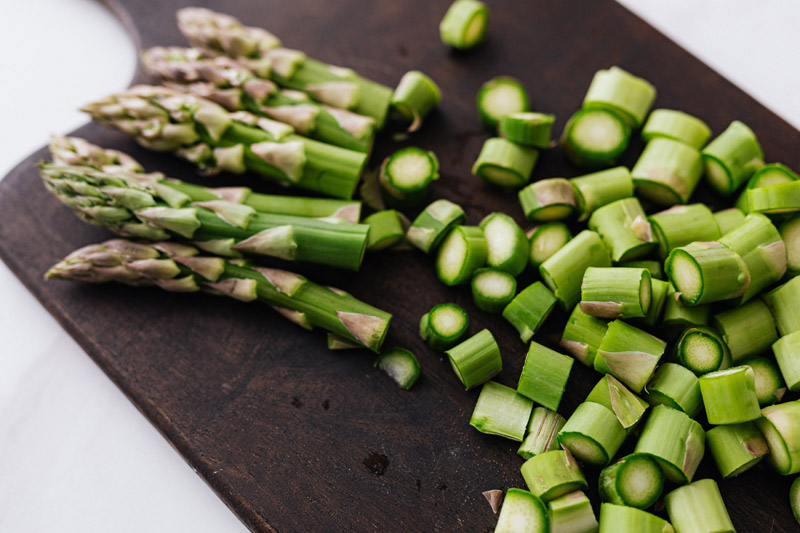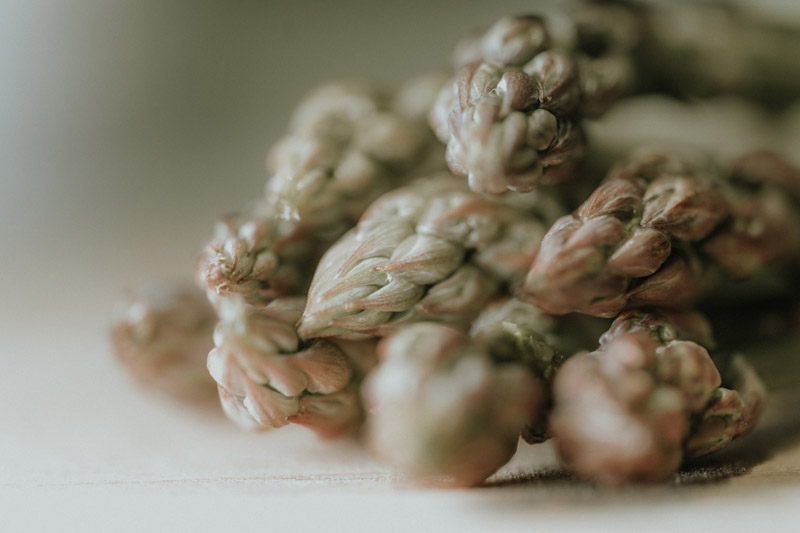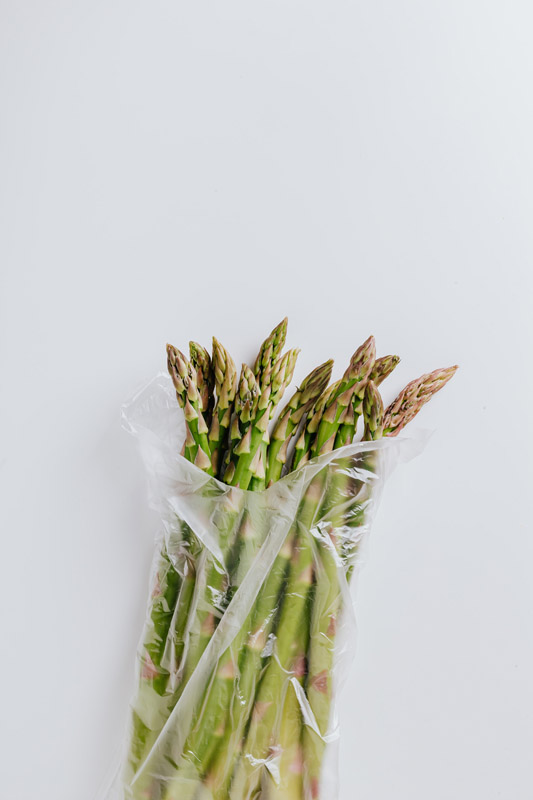Table of Contents
In the world of sustainable living and waste management, composting has emerged as an essential practice for environmentally conscious individuals and communities. Composting transforms organic waste into nutrient-rich material that promotes healthy plant growth, reducing the need for chemical fertilizers and minimizing the impact of waste disposal on landfills. As more people engage in composting, questions about the compostability of specific items arise. One such question that gardeners and eco-enthusiasts alike often ask is: can you compost asparagus?
The answer to this question is an unequivocal yes. Asparagus, like most other fruit and vegetable scraps, can be successfully composted, provided certain factors are taken into consideration. In this comprehensive article, we delve into the details of composting asparagus, exploring the factors that contribute to its compostability, the benefits of including asparagus in your compost, and how it contributes to the composting process and positively impacts the environment.
Factors Contributing to Asparagus Compostability
Asparagus is an organic, plant-based material that breaks down relatively quickly in the composting process. Its high water content and soft texture make it an ideal candidate for decomposition, as it provides moisture and easily accessible nutrients for the microorganisms that facilitate the composting process. However, for optimal composting, it is essential to ensure that the asparagus is properly mixed with other ingredients in the compost pile, such as dried leaves, grass clippings, or small twigs, to maintain a balanced carbon-to-nitrogen ratio.
Benefits of Composting Asparagus
Incorporating asparagus into your compost pile not only provides a sustainable way to dispose of waste but also contributes to the overall health and effectiveness of your compost. The nutrients released during the decomposition of asparagus scraps can help create a rich, fertile compost that promotes robust plant growth. Additionally, by composting asparagus, you contribute to the reduction of greenhouse gas emissions and the conservation of natural resources, as organic waste in landfills produces methane, a potent greenhouse gas, and requires large amounts of land and energy to manage.
While composting asparagus has many benefits, there are some potential drawbacks and challenges associated with it. Understanding these challenges and knowing how to mitigate or overcome them is essential for successful composting.
Potential Drawbacks and Challenges
Odor: As with other high-moisture, green materials, asparagus can produce unpleasant odors during decomposition. This may attract unwanted pests, such as flies or rodents, to your compost pile.
Solution: To minimize odor issues, turn the compost pile regularly to aerate the material and maintain a balanced carbon-to-nitrogen ratio by adding sufficient amounts of brown materials, such as leaves or shredded paper, to the pile.
Slow Decomposition: If asparagus stalks are particularly thick or woody, they may decompose more slowly than other materials in the compost pile.
Solution: Chop or break the asparagus stalks into smaller pieces before adding them to the compost pile. This will increase the surface area and allow for faster decomposition.
Specific Composting Process for Asparagus
- Collect asparagus scraps, such as trimmings, discarded spears, or any unsuitable portions from cooking. Rinse off any dirt or debris before composting.
- Chop the asparagus into smaller pieces to speed up decomposition and mix it with brown materials, such as dried leaves, straw, or small twigs. Aim for a ratio of about 3 parts brown materials to 1 part green materials (including asparagus) to maintain a balanced carbon-to-nitrogen ratio.
- Add the chopped asparagus and brown materials to your compost pile or bin. Turn the compost regularly to ensure proper aeration and to facilitate the decomposition process.
- Monitor the temperature of your compost pile. The ideal temperature range for decomposition is between 130°F and 160°F (54°C and 71°C). This can be achieved by maintaining the proper balance of green and brown materials, as well as turning the pile regularly to provide oxygen.
- Maintain the moisture level of the compost pile. The ideal moisture content is similar to that of a damp sponge. If the pile becomes too dry, add water sparingly. If it becomes too wet, add more brown materials to absorb excess moisture.
- Allow the compost to mature for several months, during which the asparagus and other materials will break down into a dark, crumbly, and earthy-smelling substance. Once fully decomposed, the compost can be used as a nutrient-rich amendment for gardens and plants.

Alternative Methods of Disposal or Recycling
If, for any reason, composting asparagus is not feasible or if you are looking for alternative disposal methods, consider these options:
Vermicomposting: Use worms, such as red wigglers, to break down the asparagus scraps in a worm bin. Worm castings, the end product of vermicomposting, are an excellent fertilizer for plants.
Bokashi: This is a Japanese method of anaerobic composting that uses specialized microbes to ferment organic waste, including asparagus. The fermented waste can then be buried in the soil to decompose further and release nutrients.
Feed to livestock: If you have access to animals such as chickens or pigs, asparagus scraps can be fed to them as a supplement to their regular diet. Always check the safety of feeding specific scraps to animals before doing so.
In conclusion, composting asparagus is both possible and beneficial. By understanding the potential challenges and addressing them effectively, you can create nutrient-rich compost that supports healthy plant growth and contributes to a more sustainable environment.
Common Myths and Misconceptions about Composting Asparagus
Myth: Composting asparagus causes a nitrogen imbalance in the compost pile.
Truth: While it is true that asparagus is a green material that adds nitrogen to the compost, a proper balance can be maintained by adding sufficient brown materials (carbon-rich materials) to the pile. The ideal ratio is about 3 parts brown materials to 1 part green materials.
Myth: Asparagus cannot be composted due to its high water content.
Truth: Although asparagus does have a high water content, it is perfectly suitable for composting. The moisture it provides can actually be beneficial for the composting process, as long as it is balanced with the right amount of brown materials to prevent the pile from becoming too wet.
Myth: Composting asparagus attracts rodents and other pests.
Truth: While composting any food waste can potentially attract pests, this can be mitigated by taking proper precautions, such as turning the compost pile regularly to promote aeration, maintaining the correct balance of materials, and using a pest-resistant compost bin.
Myth: Cooked asparagus cannot be composted.
Truth: Cooked asparagus, including steamed, roasted, or otherwise prepared, can indeed be composted. However, it is essential to ensure that the cooked asparagus is free of any oils, sauces, or seasonings that could introduce non-organic or potentially harmful substances to the compost pile. Additionally, cooked asparagus might break down more quickly than raw asparagus due to its softer texture, so it is essential to maintain the right balance of green and brown materials and monitor the moisture level of the compost pile.

Conclusions
Composting asparagus is a sustainable and environmentally friendly way to dispose of waste and contribute to a healthy compost pile. By addressing common myths and misconceptions, understanding the factors that contribute to successful composting, and implementing responsible waste management practices, you can harness the power of composting to create nutrient-rich soil amendments that promote vibrant plant growth. Embrace the benefits of composting asparagus and continue on your journey toward a more sustainable and eco-conscious lifestyle.
Additional reading on asparagus and compost
https://www.epa.gov/recycle/composting-home
https://www.tastingtable.com/801897/the-best-ways-to-use-your-leftover-asparagus-ends/
https://extension.umn.edu/growing-guides/nutrient-management-asparagus
